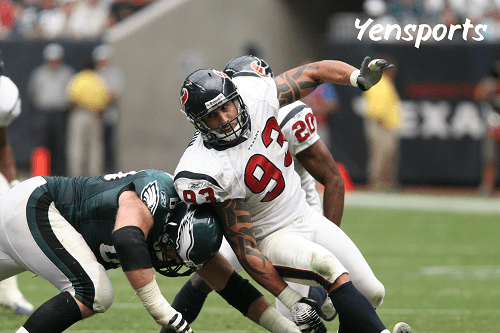Understanding NFL Pension After 5 Years: What Players Need to Know
NFL Pension, The NFL retirement system is an important benefit for former players, providing them with financial security after they retire from the sport. However, the details of the retirement plan can be complex, especially when it comes to eligibility and how much a player can expect to receive. One of the most common questions is what happens to an NFL player’s pension after five years of service. This article will explain the details of the retirement system for players who have spent at least five years in the league, including eligibility requirements, payout amounts, and key considerations.

NFL Pension Eligibility:
The NFL pension is part of the overall benefits package, which consists of the collective bargaining agreement between the NFL Players Association and the league. To qualify for an NFL pension, a player must have at least three credited seasons and three years of service in the league. Therefore, players with at least three years of active NFL play are eligible for payments upon retirement. However, the player pension increases significantly after a player reaches five seasons of service. After five years, the player’s pension becomes valuable and is calculated based on the player’s seasons, age, and years of service at the time of retirement.
How Does the NFL Pension Work After 5 Years?
For players with five credited seasons, the NFL pension works as follows:
-
Vesting Period:
The NFL has a “vesting” requirement, which means that players must complete. At least three credited seasons to start receiving pension benefits. After five years of playing, the player is fully vested. Which enables them to receive a higher monthly benefit and earlier eligibility for pension payouts.
-
Pension Calculation:
The amount of the pension is calculated on a player’s years of service. The monthly benefit for the players with five years of credited seasons is calculated according to the specific formula. Defined in the Collective Bargaining Agreement. For instance, players may receive a fixed amount of benefit for every year served. And the amount goes up as the years are added. For instance, players who spend more years in the NFL. Enjoy a bigger return compared to those with only five years of service.
-
Benefit Increases:
A salient feature of the NFL pension system is that the benefit increases. With the length of time a player spends playing. For instance, a five-year man might have a basic pension that increases if he has more credited seasons. The CBA also includes annual cost-of-living adjustments to ensure that the pension keeps pace with inflation, which can further increase the benefit amount over time.
Minimum retirement age:
The minimum retirement age for a pension benefit would be 55 years of age, though a player who waits may collect a larger monthly pension benefit. The longer that one waits, the higher their monthly amount, so one’s ability to retire successfully depends largely on their readiness for early retirement and their pension eligibility age.
After five credited seasons, the monthly pension benefit can vary, but here are some general guidelines:
- Players with five credited seasons can expect to receive a pension of approximately $4,000 to $5,000 per month if they retire at age 55.
- The pension benefit can increase with each additional year of service. For example, players with 10 years of service might see their monthly benefit increase to $8,000 or more.
- Besides receiving a lump sum payout, players can also opt to be given in a lump sum, a practice that may suit some. However, this comes with several risks and tax considerations.
Significance of Post-Retirement Benefits:

The NFL pension provides long-term financial security for players who retire with at least five years of service. While it is not enough to replace the full amount earned during a playing career, the pension serves as an important supplement that allows retired players to live in financial security. In addition to the pension, NFL retirees enjoy other benefits, such as health plans, disability insurance, and assistance with transitioning to post-career life. These benefits may be necessary for players to deal with medical issues arising from their football careers.
Five Frequently Asked Questions (FAQs) About NFL Pension After 5 Years:
1. How much does an NFL player make in pension after five years?
The average monthly pension for a player with five years of service is generally between $4,000 to $5,000 per month. This amount increases if the player has more seasons or waits longer to begin collecting their pension.
2 . Can a player with five years of service take his pension immediately?
No. Players become vested in the pension system after three years, but they must be at least 55 years old to begin collecting pension benefits. If they wait until they are older, the monthly benefit amount may be higher.
3. Are NFL pension benefits taxed?
Yes, NFL pension benefits are taxed at the federal and state levels. Players should plan for these tax implications and seek a financial advisor to ensure their pension plan is properly managed for retirement.
4 . If a player leaves the NFL early, what will happen to his pension?
In case a player retires before fulfilling the aforementioned vesting requirement of a pension, then that player is not qualified for his pension. On the other hand, a player who has already been vested can leave the league, but his pension will remain and be payable at a specific retirement age.
5. Can NFL players access the pension before age 55?
Most players wait until they are at least 55 to start receiving a pension; however, in extreme cases, a player can receive a pension before that age, such as when a player becomes disabled throughout their career and during their playing days due to injuries they have sustained. Generally, these are all exceptions, so they are strictly dependent on pension eligibility.
Conclusion:

This benefit can only be taken advantage of if a person has played for more than five years in the NFL. The pension for these players is what will provide security when they retire, as long as this benefit has an increased probability of winning for these players based on years of service and age at retirement. Understanding the details of how the pension works can help NFL players plan for their future and make the most of the benefits they have earned during their careers.

